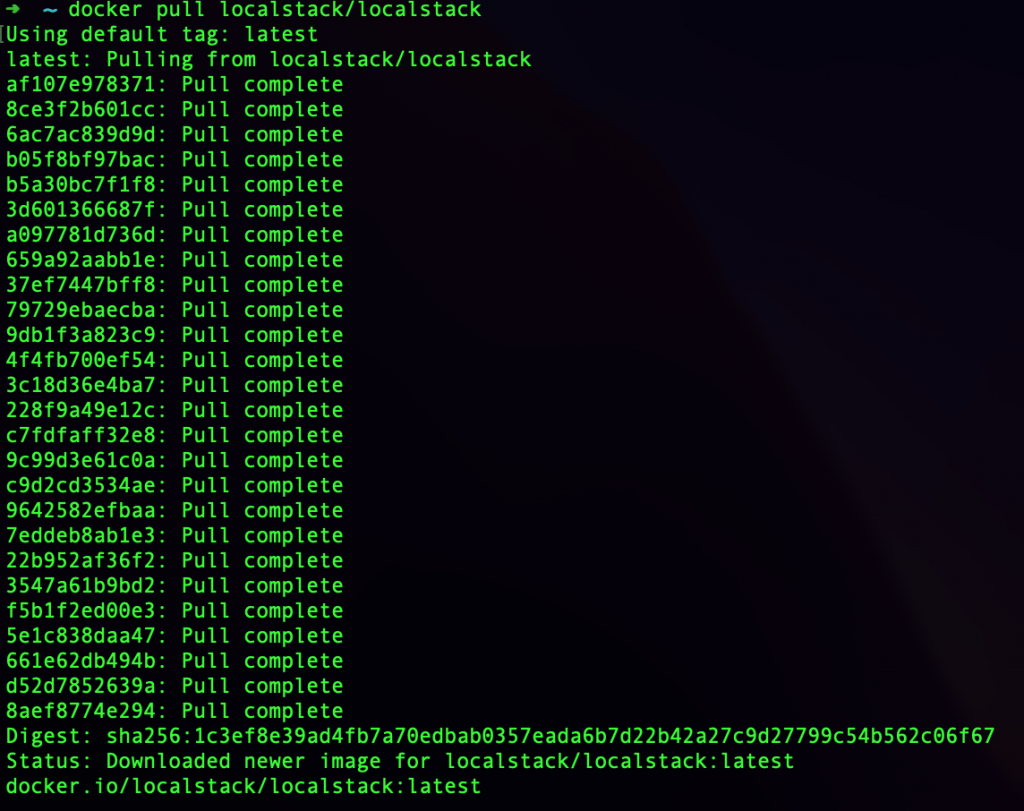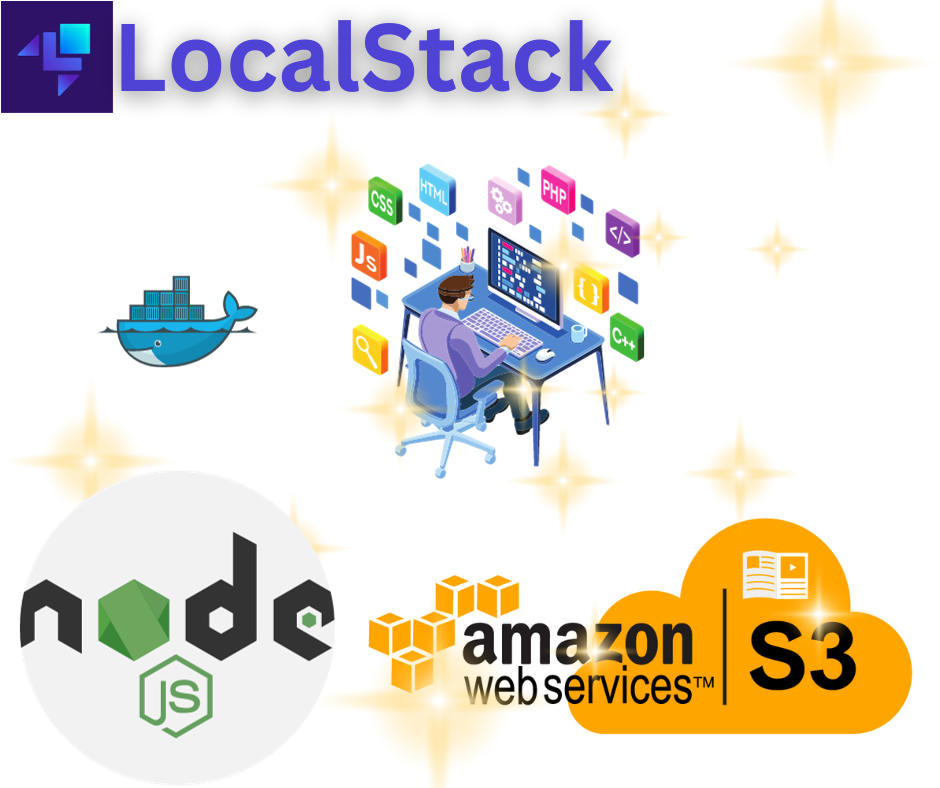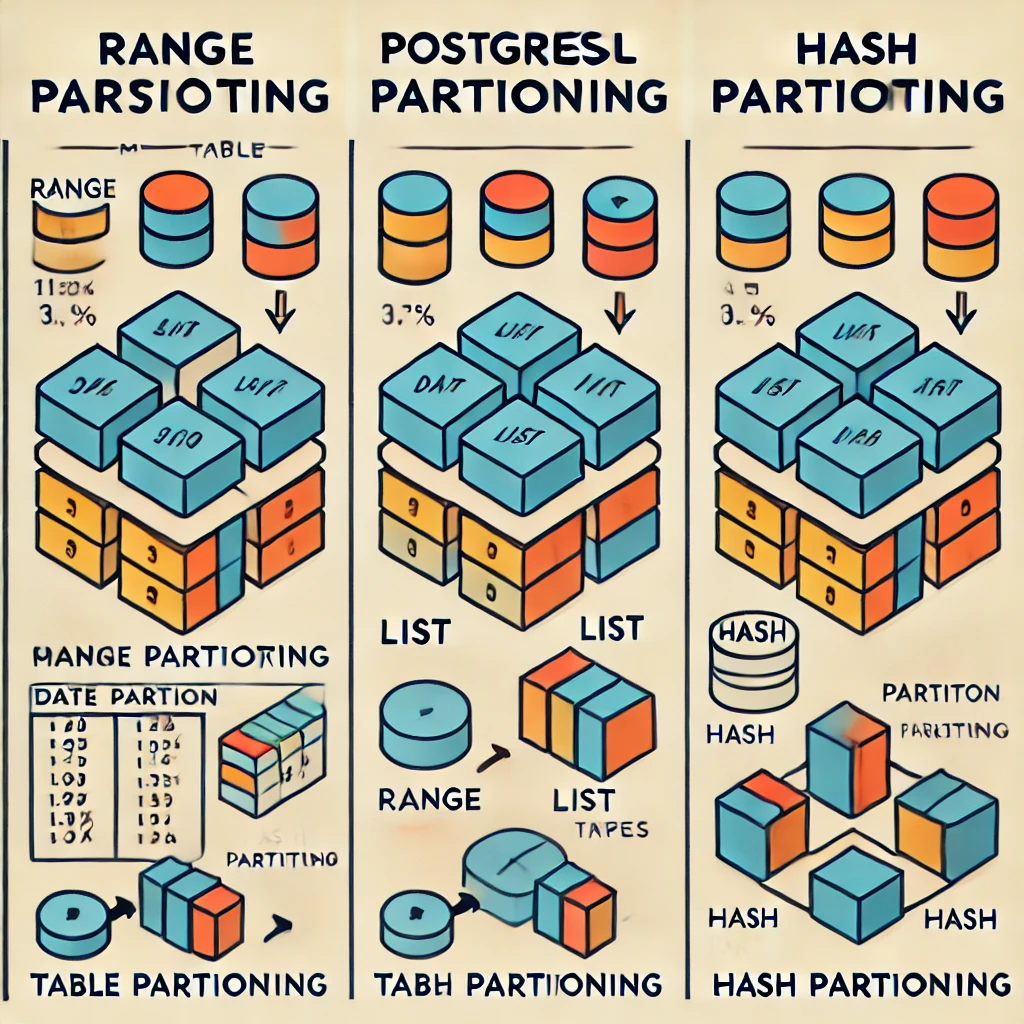NodeJS and AWS SDK Explained
introduction
Have you ever wanted to build applications that use Amazon Web Services (AWS) but found it challenging or costly to test them locally? Enter LocalStack! Imagine a tool that allows you to develop and test AWS applications right on your computer without spending a penny on cloud resources. This blog will walk you through using LocalStack with NodeJS and AWS SDK, making it easier than ever to create and experiment with AWS services in a local environment. Let’s dive in!
Setting up LocalStack:
Installing LocalStack:
Install Docker:
- Docker helps run LocalStack easily on your computer.
Pull LocalStack Image:
Use a simple command in your terminal or command prompt to download the LocalStack image from Docker Hub.
Example:
docker pull localstack/localstack
Starting LocalStack:
Start Docker Container:
Run LocalStack as a Docker container using a straightforward command.
Example:
docker run -d --name localstack_container -p 4566:4566 -e SERVICES=s3 -e DOCKER_HOST=unix:///var/run/docker.sock localstack/localstackConfiguration for NodeJS:
Install AWS SDK in NodeJS:
Use Node Package Manager (npm) to install the AWS SDK for NodeJS in your project.
Example:
npm install aws-sdkSet AWS Configuration:
Configure your NodeJS application to use LocalStack as the AWS endpoint.
Example:
const AWS = require('aws-sdk');
const s3 = new AWS.S3({
endpoint: 'http://localhost:4566', // LocalStack endpoint
s3ForcePathStyle: true, // Necessary for local development
credentials: new AWS.Credentials({
accessKeyId: 'dummy-access-key',
secretAccessKey: 'dummy-secret-key',
}),
});
Example Use Case – Uploading a File to LocalStack S3:
Write NodeJS Code:
Create a simple NodeJS script to upload a file to LocalStack’s simulated S3 bucket.
Before running your script, make sure to create the bucket using the AWS CLI or SDK. Here’s how you can create a bucket using the AWS CLI:
aws --endpoint-url=http://localhost:4566 s3 mb s3://my-local-bucketExample:
const fs = require('fs').promises;
const path = require('path');
const AWS = require('aws-sdk');
const createBucketIfNotExists = async (s3, bucketName) => {
try {
await s3.headBucket({ Bucket: bucketName }).promise();
} catch (error) {
if (error.statusCode === 404) {
// Bucket does not exist, create it
await s3.createBucket({ Bucket: bucketName }).promise();
} else {
throw error;
}
}
};
const uploadFile = async () => {
try {
const s3 = new AWS.S3({
endpoint: 'http://localhost:4566', // LocalStack endpoint
s3ForcePathStyle: true, // Necessary for local development
credentials: new AWS.Credentials({
accessKeyId: 'dummy-access-key',
secretAccessKey: 'dummy-secret-key',
}),
});
const bucketName = 'my-local-bucket';
const filePath = path.join(__dirname, 'file.txt');
const fileContent = await fs.readFile(filePath);
// Check if the bucket exists, create it if not
await createBucketIfNotExists(s3, bucketName);
const params = {
Bucket: bucketName,
Key: 'file.txt',
Body: fileContent
};
const data = await s3.upload(params).promise();
console.log("File uploaded successfully:", data.Location);
} catch (err) {
console.error("Error uploading file:", err);
}
};
uploadFile();
This example demonstrates how to configure your NodeJS application to interact with LocalStack’s S3 service. Adjust the code according to your use case, allowing you to simulate various AWS services locally for development and testing purposes.
In this example, the script uploads a file (`file.txt`) to a simulated S3 bucket in LocalStack. After running the script, you should see the following output:
File uploaded successfully: http://localhost:4566/my-local-bucket/file.txtThis output indicates that the file has been successfully uploaded to the simulated S3 bucket (`my-local-bucket`) at the given URL.
To interact with the uploaded file, you can download it using the provided URL. Use the following command in your terminal:
curl -o downloaded_file.txt http://localhost:4566/my-local-bucket/file.txtReplace downloaded_file.txt with the desired local filename. Feel free to explore, download, and interact with the uploaded file in the simulated S3 bucket!
For a comprehensive example and to explore the full capabilities of LocalStack with NodeJS and AWS SDK, check out the complete project on GitHub:
https://github.com/delwar2016/LocalStack-aws-nodejs-example.gitFeel free to clone the repository, experiment with the code, and contribute to the project. Your feedback and contributions are highly appreciated!
Key Benefits of LocalStack
1. Cost-Saving Development:
LocalStack lets you develop and test AWS applications on your computer without incurring any costs from the actual AWS services. This helps save money during development.
2. Local Environment Testing:
It creates a local environment that behaves like AWS services, allowing you to test and develop applications without needing an internet connection or affecting live AWS resources.
3. Rapid Iteration:
Working with LocalStack speeds up the development process by reducing the time needed to deploy and test changes. This rapid iteration enhances productivity.
4. Isolated Development:
You can experiment and test different functionalities without impacting live AWS resources or risking unintended consequences in the actual AWS environment.
5. Enhanced Collaboration:
LocalStack enables team members to work collaboratively on projects by providing a consistent, shared development environment that everyone can access locally.
6. Ease of Setup:
Setting up LocalStack is straightforward and can be easily integrated into existing development workflows, making it accessible to developers at all skill levels.
These benefits collectively empower developers to build and refine AWS-based applications in a cost-effective, controlled, and efficient manner, improving the overall development experience.
Conclusion
Incorporating LocalStack into your NodeJS development workflow alongside the AWS SDK offers a revolutionary approach to building and testing AWS-based applications. This robust tool empowers developers to simulate AWS services locally, creating a cost-effective and isolated environment for development and testing. By seamlessly integrating LocalStack with NodeJS, developers can iterate more rapidly, collaborate efficiently, and confidently experiment with various AWS functionalities without affecting live AWS resources. Embrace LocalStack to streamline your development process, enhance team collaboration, and lay the groundwork for more robust, cost-efficient, and error-resilient AWS applications. Start leveraging LocalStack today and experience a smoother, more efficient development journey!



